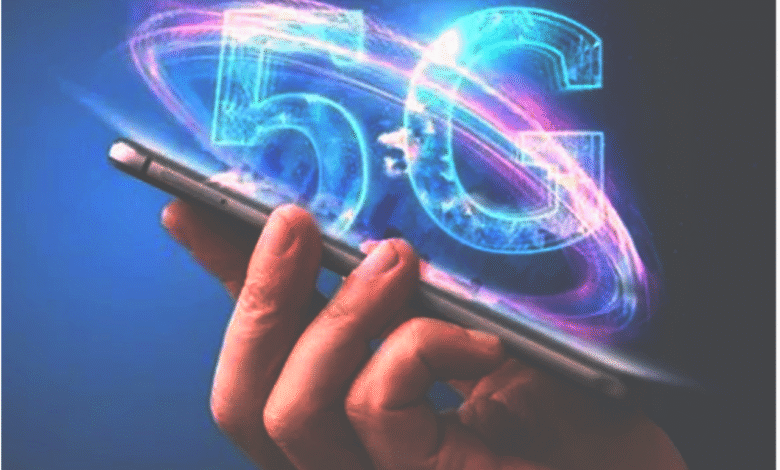
Pakistan’s 5G rollout marks a pivotal moment in the nation’s digital transformation, promising to revolutionize how consumers and businesses interact with technology. As the next generation of wireless connectivity, 5G in Pakistan brings unprecedented speeds, ultra-low latency, and massive device connectivity that will enable innovations across industries. From seamless streaming and immersive gaming to transformative applications in healthcare, education, and smart cities, this technological leap forward has the potential to bridge digital divides and accelerate economic growth. However, its success hinges on overcoming infrastructure challenges, ensuring affordability.
The 5G Rollout in Pakistan comes at a critical time when digital connectivity has become essential for both daily life and economic competitiveness. For consumers, it means faster downloads, smoother video calls, and access to cutting-edge technologies like augmented reality. Businesses stand to gain even more, with opportunities to optimize operations through IoT, cloud computing, and AI-driven solutions. As Pakistan prepares for this transition, stakeholders must address key challenges including spectrum allocation, network security, and device accessibility to fully harness 5G’s transformative potential and position the country as a competitive player in the global digital economy.
Pakistan’s 5G Rollout
The Evolution of Mobile Networks in Pakistan
Pakistan’s journey from 2G to 4G has been gradual but impactful. The transition to 5G in Pakistan represents the next phase of this evolution, bringing with it the promise of ultra-fast internet, seamless connectivity, and support for emerging technologies like the Internet of Things (IoT), artificial intelligence (AI), and smart cities. While 4G LTE improved mobile broadband speeds, 5G is set to redefine how consumers interact with digital services and how businesses operate in an increasingly connected world.
The Business Impact of 5G in Pakistan
Businesses across various sectors stand to gain immensely from 5G in Pakistan. The healthcare industry can leverage telemedicine and remote surgeries with minimal latency, while the education sector can benefit from immersive virtual classrooms. Manufacturing and logistics companies can implement smart factories and real-time tracking systems, optimizing supply chains and reducing operational costs.
Challenges in the 5G Rollout
Despite its potential, the deployment of 5G in Pakistan faces several hurdles. The high cost of infrastructure development, spectrum licensing fees, and the need for widespread fiber optic networks pose significant challenges. Additionally, concerns about cybersecurity and data privacy must be addressed to ensure user trust in the new technology. Another obstacle is the affordability of 5G-enabled devices for the average consumer. While high-end smartphones already support 5G, mid-range and budget-friendly options need to become more widely available to ensure mass adoption.
What 5G Means for Consumers
For consumers, 5G Rollout in Pakistan will translate into significantly faster download and upload speeds, reducing buffering times for streaming services and enabling high-quality video calls. Gamers will experience near-instantaneous response times, while augmented reality (AR) and virtual reality (VR) applications will become more accessible. Additionally, 5G will enhance mobile banking, e-commerce, and remote work capabilities, making digital services more efficient and reliable.
Government and Regulatory Support
The successful implementation of 5G Rollout in Pakistan depends heavily on government policies and regulatory frameworks. The Pakistan Telecommunication Authority (PTA) must ensure fair spectrum allocation and encourage competition among service providers to keep prices competitive. Public-private partnerships can accelerate infrastructure development, particularly in underserved regions. Furthermore, the government should incentivize local tech innovation by supporting startups and research initiatives focused on 5G applications.
The Future of 5G in Pakistan
Accelerating Digital Transformation Across Industries
The 5G in Pakistan will revolutionize multiple sectors by enabling faster, more reliable connectivity. In healthcare, telemedicine and remote surgeries will become more efficient due to ultra-low latency. The education sector will benefit from immersive virtual classrooms and AI-powered learning tools. Manufacturing and logistics will see advancements in automation, IoT-enabled smart factories, and real-time tracking systems, improving productivity and reducing costs.
Enhancing Consumer Connectivity and Experiences
For everyday users, 5G Rollout in Pakistan will bring unprecedented improvements in internet speed, reliability, and accessibility. Consumers can expect Blazing-fast download and upload speeds (up to 100 times faster than 4G) Near-zero latency, improving online gaming, video calls, and cloud services. Better network coverage in crowded urban areas and remote regions. Support for smart home devices, making IoT integration smoother
Infrastructure and Investment Challenges
Despite its potential, Pakistan’s 5G rollout faces significant hurdles, including High deployment costs (spectrum auctions, fiber optic expansion, and tower upgrades). Limited fiber optic backbone, crucial for 5G’s high-speed backhaul requirements. Power supply instability, which could affect network reliability. Urban-rural digital divide, as rural areas may lag in 5G coverage.
Government Policies and Regulatory Framework
The Pakistan Telecommunication Authority (PTA) and the Ministry of IT play a crucial role in 5G’s future. Key steps include Fair spectrum allocation to ensure competition and affordability. Tax incentives for telecom companies to accelerate 5G deployment. Cybersecurity regulations to protect against data breaches and cyber threats. Digital literacy programs to educate consumers and businesses on 5G benefits.
Economic Impact and Job Creation
The successful adoption of 5G in Pakistan could significantly boost the economy by Creating thousands of jobs in tech, telecom, and related industries. Attracting foreign investment in Pakistan’s digital infrastructure. Enabling tech startups to innovate in AI, IoT, and cloud computing. Increasing GDP growth through improved productivity across sectors.
Security and Privacy Concerns
With greater connectivity comes increased risks. 5G networks must address Cybersecurity threats (hacking, data breaches, and ransomware attacks). Privacy concerns due to increased data collection from IoT devices. Network vulnerabilities from reliance on foreign equipment vendors. Pakistan must develop strong encryption standards and collaborate with international cybersecurity experts to safeguard its 5G ecosystem.
Read More: Digital Marketing Trends Dominating Pakistani Businesses This Year
Conclusion
Pakistan’s 5G rollout represents a transformative leap forward that will redefine digital experiences for consumers and operational capabilities for businesses. As this next-generation technology becomes operational, it promises to unlock new possibilities from lightning-fast connectivity and seamless streaming to revolutionary applications in telemedicine, smart manufacturing, and financial technologies. The successful implementation of 5G in Pakistan will not only enhance quality of life for citizens but also boost the country’s economic competitiveness by enabling businesses to adopt cutting-edge digital solutions and compete in global markets.
However, realizing the full potential of 5G Rollout in Pakistan requires concerted efforts from all stakeholders. Telecom providers must invest in robust infrastructure, policymakers need to create an enabling regulatory environment, and device manufacturers should ensure affordability for widespread adoption. As Pakistan stands at the threshold of this digital revolution, strategic collaboration between government and private sector will be crucial to overcome challenges and ensure that 5G becomes a catalyst for inclusive growth, innovation, and national progress in the years to come.
FAQs
What is 5G, and how is it different from 4G?
5G is the fifth generation of mobile networks, offering significantly faster speeds, lower latency, and greater capacity than 4G, enabling advanced technologies like IoT and AI.
When will 5G Rollout be available in Pakistan?
While no official date has been announced, trials are underway, and a full rollout is expected within the next few years.
Will 5G Rollout be affordable for average consumers?
Initial costs may be high, but prices are expected to decrease as adoption grows and more budget-friendly devices become available.
How will 5G impact businesses in Pakistan?
5G will enhance automation, real-time data processing, and remote operations, boosting efficiency across industries like healthcare, logistics, and e-commerce.
What challenges does Pakistan face in adopting 5G Rollout?
Key challenges include high infrastructure costs, spectrum pricing, device affordability, and the need for robust cybersecurity measures.











